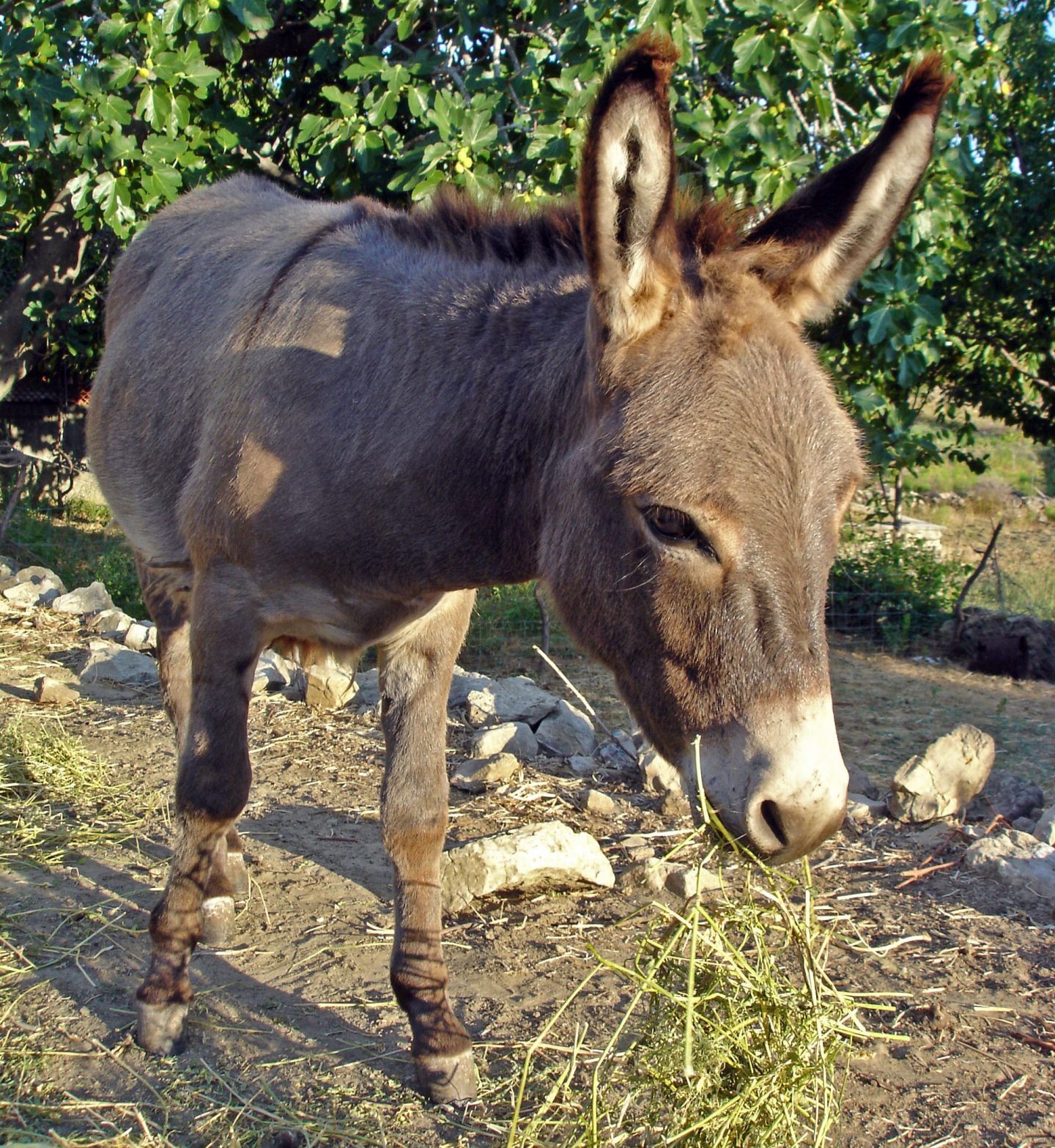An old man through a town did often pass,
With him, a stripling and an ass.
The man did ride, the boy was pedester;
As fit it was, he wait upon his master.
At this, the people laughed aloud
Saying the man was merciless or proud
To let the pretty child go sweating by
Whilst he rode, ambling in his majesty.
The boy rode next, the man did trudge afoot,
But then the people did so laugh and shout
Because the man did favor so the lad
To go afoot whilst he rode on his pad.
Next time, this poor man through the town did pass,
The man and boy got both up on the ass,
But then the people bade him light for shame:
He’d spoil the ass or make him sick or lame.
Next time, beside the ass, they both did walk,
But then they were the town and country’s talk.
The people laughed and made the welkin ring;
Children, their folly up and down did sing.
Once more, the man resolved the road to pass,
And then the youth and he did bear the ass,
_________________________________
At which, the people did so laugh and roar
That the poor man would nevermore explore
The Hadrian monstrosity to please,
But sadly flung his ass into the seas.
By this, you see, they do themselves delude
That think to please the giddy multitude.
Andronicus did make this story good–
Even he that shed his loyal sovereigns’ blood.
Sejanus so by popular breath up born
By Briareus was in pieces torn.
So, some alive the Hydra’s love will rue
When as to them they give to these their due.
For certainly it will one day come to pass,
They’ll have the death and burial of this ass.
Aesop’s “The Man, the Boy, and the Donkey”
By Cole Davis
This emblem is actually almost entirely based on an ancient Greek fable found in a larger collection of fables put together by a former tyrant of Athens, Demetrius Phalereus. Demetrius Phalereus lived around the third century B.C. and founded the Alexandria library. The fable is credited to a Phrygian slave who lived in Samos in the sixth century B.C. named Aesop. The fable, “The Man, the Boy, and the Donkey,” starts with a man and a boy who get insulted as they ride a donkey through a town in a variety of different ways. After trying every combination of riding the donkey and continually getting insulted, the man and the boy tie the donkey up to a stick and carry it through town until they reach a bridge where the boy accidentally drops the donkey off the bridge into the water where it drowns. The moral of the fable is that if you try to please everybody, you will please no one:
From Aesop, “The Man, the Boy, and the Donkey”
A Man and his son were once going with their Donkey to market. As they were walking along by its side a countryman passed them and said: “You fools, what is a Donkey for but to ride upon?”
So the Man put the Boy on the Donkey and they went on their way. But soon they passed a group of men, one of whom said: “See that lazy youngster, he lets his father walk while he rides.”
So the Man ordered his Boy to get off, and got on himself. But they hadn’t gone far when they passed two women, one of whom said to the other: “Shame on that lazy lout to let his poor little son trudge along.” Well, the Man didn’t know what to do, but at last he took his Boy up before him on the Donkey. By this time they had come to the town, and the passersby began to jeer and point at them. The Man stopped and asked what they were scoffing at. The men said: “Aren’t you ashamed of yourself for overloading that poor Donkey of yours–you and your hulking son?”
The Man and Boy got off and tried to think what to do. They thought and they thought, till at last they cut down a pole, tied the Donkey’s feet to it, and raised the pole and the Donkey to their shoulders. They went along amid the laughter of all who met them till they came to Market Bridge, when the Donkey, getting one of his feet loose, kicked out and caused the Boy to drop his end of the pole. In the struggle the Donkey fell over the bridge, and his fore-feet being tied together he was drowned.
“That will teach you,” said an old man who had followed them: “Please all, and you will please none.”
Jacobs, J., Aesop, & Levine, D. (1964). The fables of aesop. New York: Macmillan, p. 149-151; Jeffreys, E., & Cutler, A. (1991). Aesop. In The Oxford Dictionary of Byzantium. : Oxford University Press. Retrieved 17 Nov. 2019, from https://www-oxfordreference-com.colorado.idm.oclc.org/view/10.1093/acref/9780195046526.001.0001/acref-9780195046526-e-0082.
